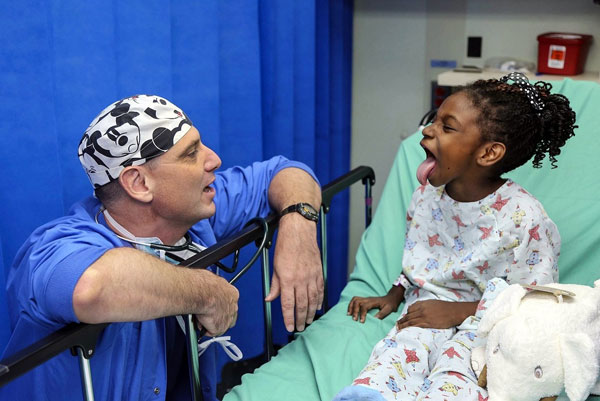- South Texas Students Meet Accordion Music Icons Los Tigres Del Norte In Edinburg Thanks To Khs America/Hohner Alianza Académica Initiative
- Fragile Planet Offers a Nighttime Wildlife Experience
- Falcons Soccer Off & Running
- Cameron County Receives Funds to Improve Two Parks
- Falcons Complete First Half of 32-6A
- School District to Help out Victims of California Wildfires
- Sand Castle Days Continued Despite Unexpected Weather
- Ready for District
- Discussion of Garbage Dumpster Rates, Agreements Between State & City on Highway Regulations, and More
- 31st Annual Shrimp Cook-Off is Right Around the Corner
Health Center Backing Has History of Bipartisan Support
- Updated: July 22, 2016
by Mark Richardson
AUSTIN, Texas – Hundreds of thousands of Texans receive medical care each year from community health centers, and even more could be served in the future.
Presumptive Democratic presidential nominee Hillary Clinton has announced plans to significantly expand funding for health centers, a proposal crafted with the aid of Sen. Bernie Sanders of Vermont.
Dan Hawkins, senior vice president for research and policy for the National Association of Community Health Centers (NACHC), explains that health centers have a long history of bipartisan support, initially launched by President Lyndon Johnson in 1965.
“President George W. Bush made doubling the reach of health centers a priority during his term in office and he doubled the size of the program and the number of people they serve, as did U.S. Sen. John McCain and President Barack Obama during their run in 2008,” Hawkins points out
Community health centers serve 25 million Americans each year, and the proposal could more than double the number by 2027.
Hawkins says because of their focus on prevention, health centers save the U.S. health care system more than $24 billion annually in reduced preventable hospitalizations and emergency room use.
And he notes centers also are community problem solvers.
“They also reach beyond the walls of their exam rooms to address the factors that may cause poor health, lack of nutrition, poor mental health, homelessness or drug abuse,” he explains. “In fact, health centers are now part of the effort to address the nationwide opioid epidemic and the Zika virus.”
Clinton’s proposal calls for $40 billion for Community Health Centers over the next decade, nearly double current funding levels.

